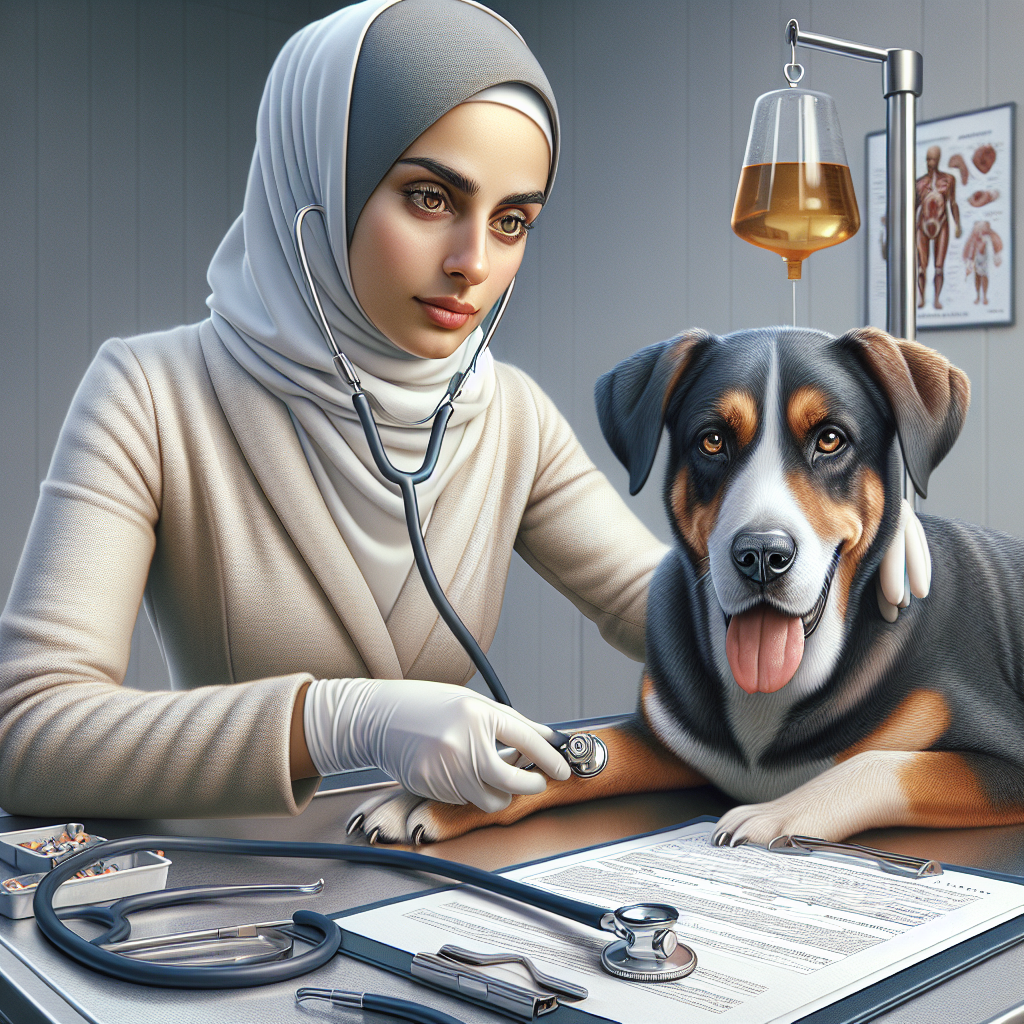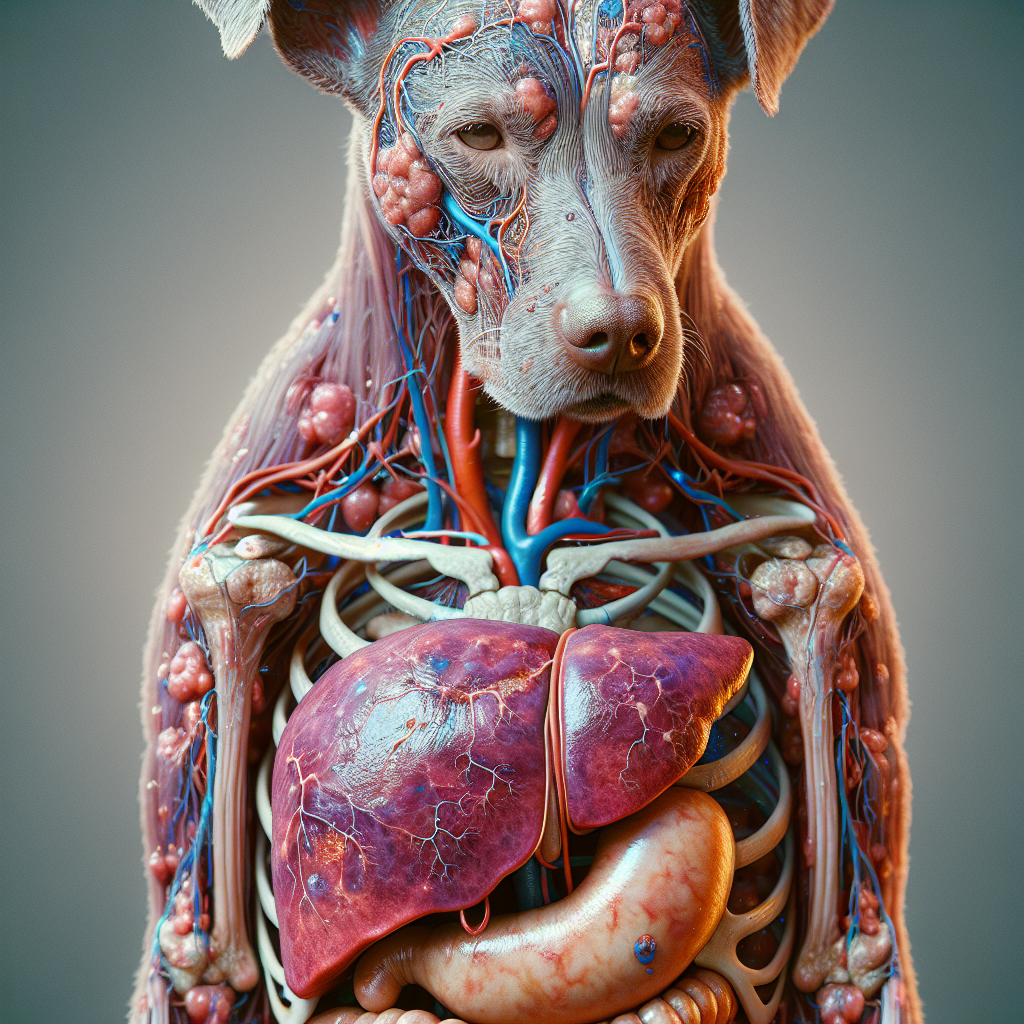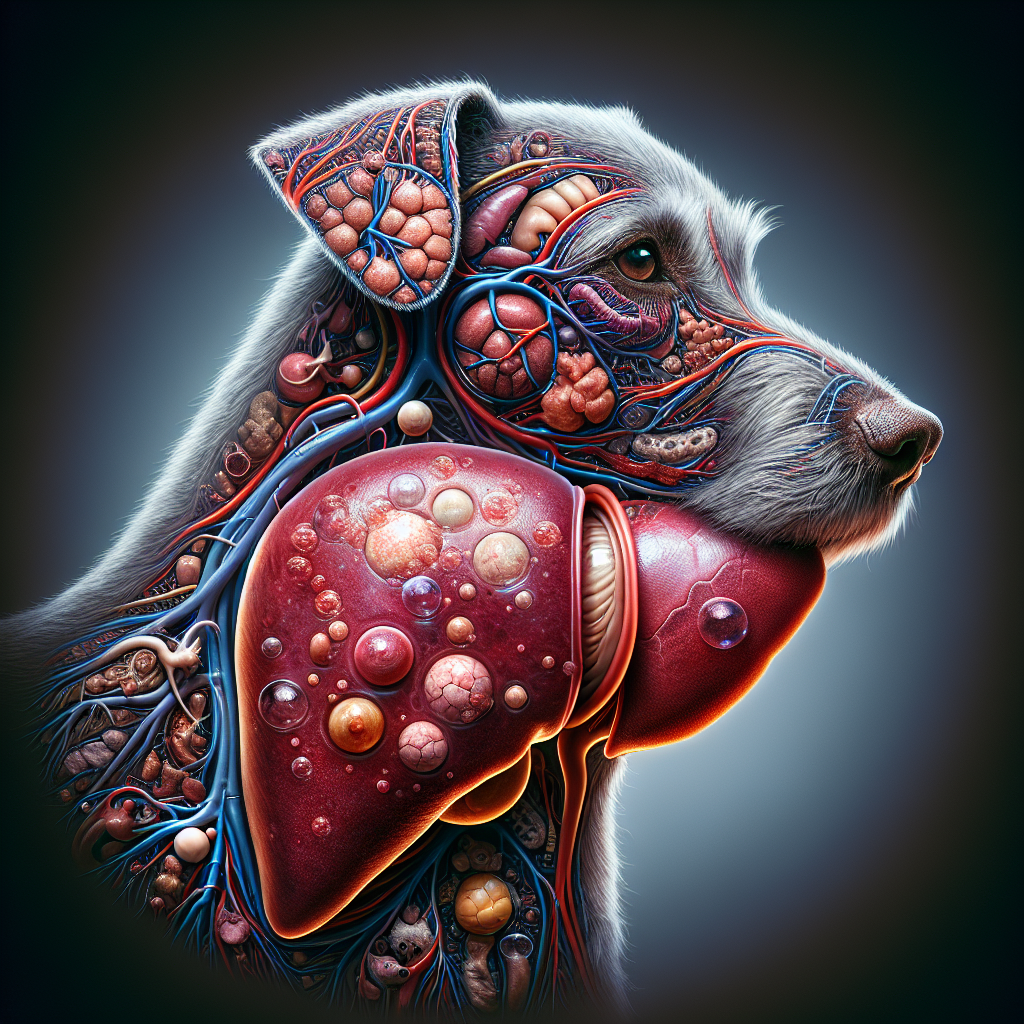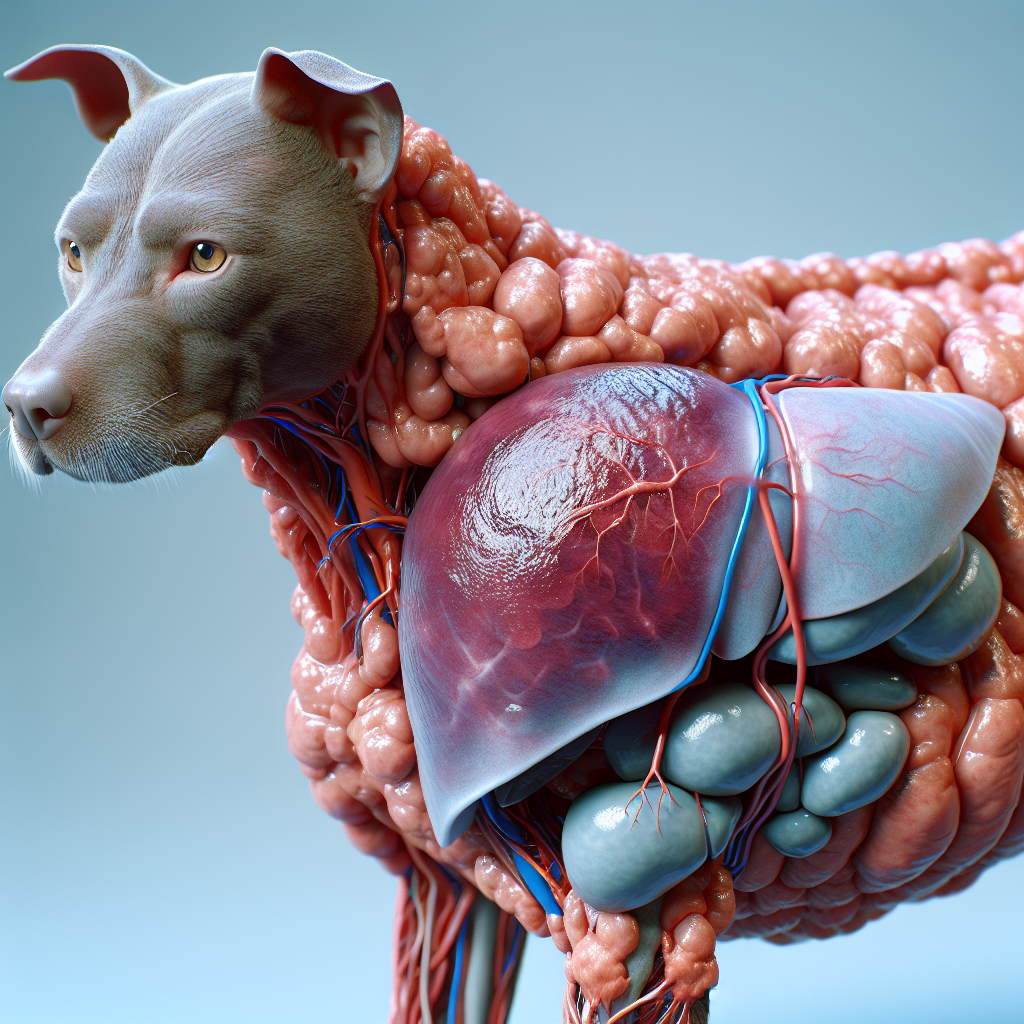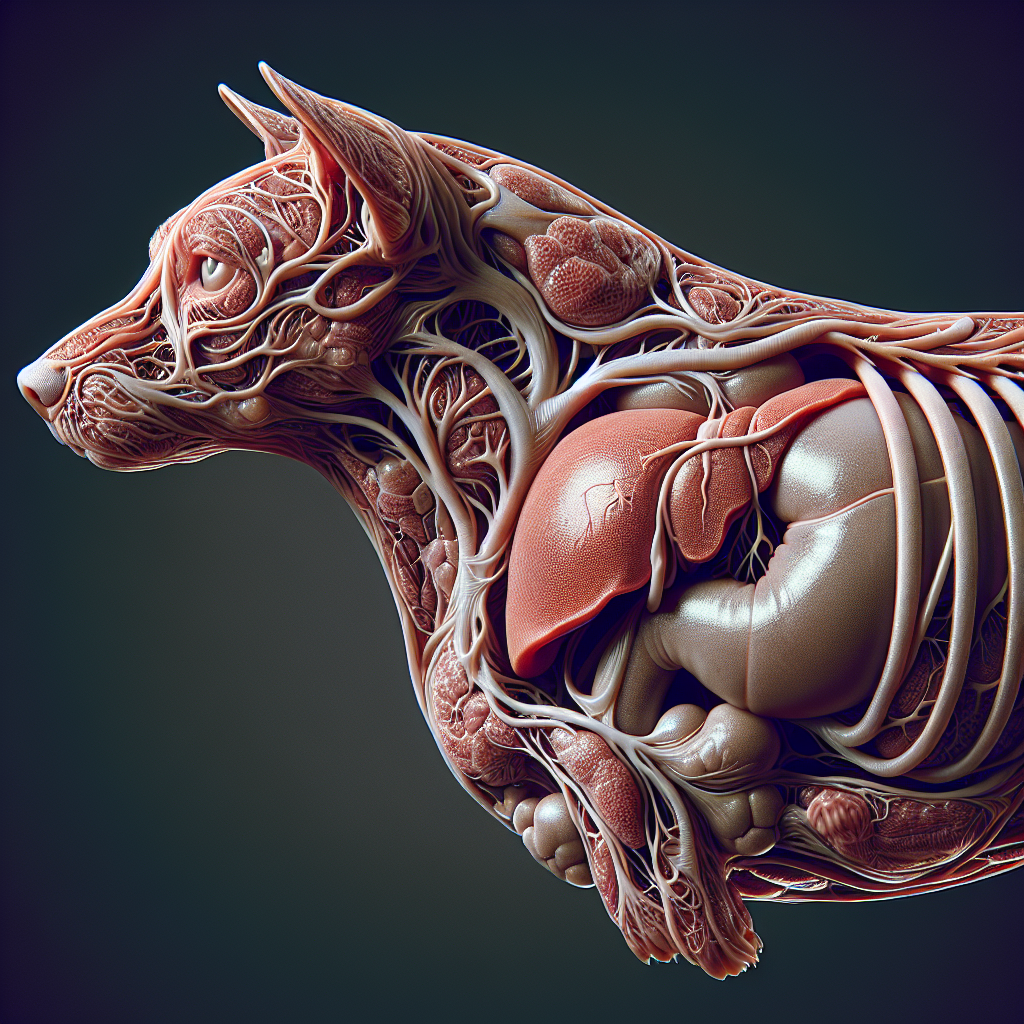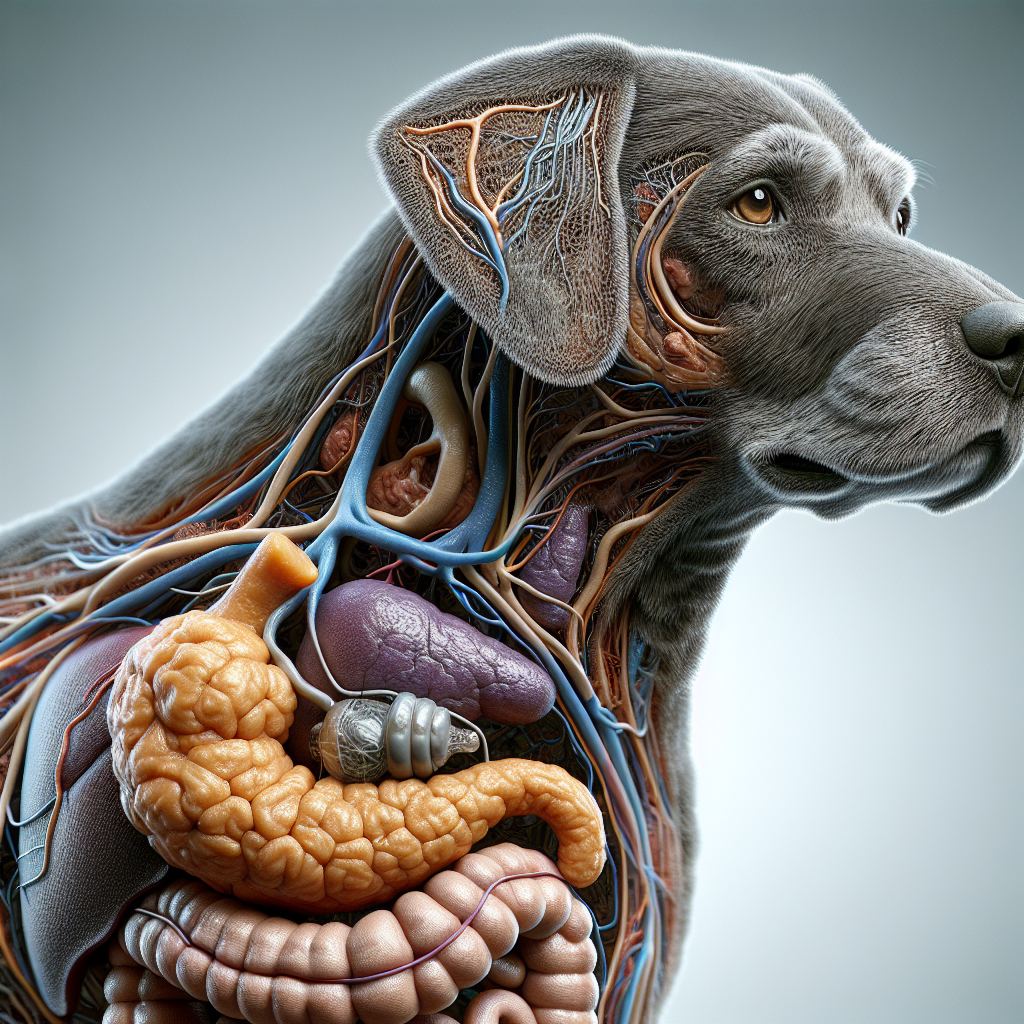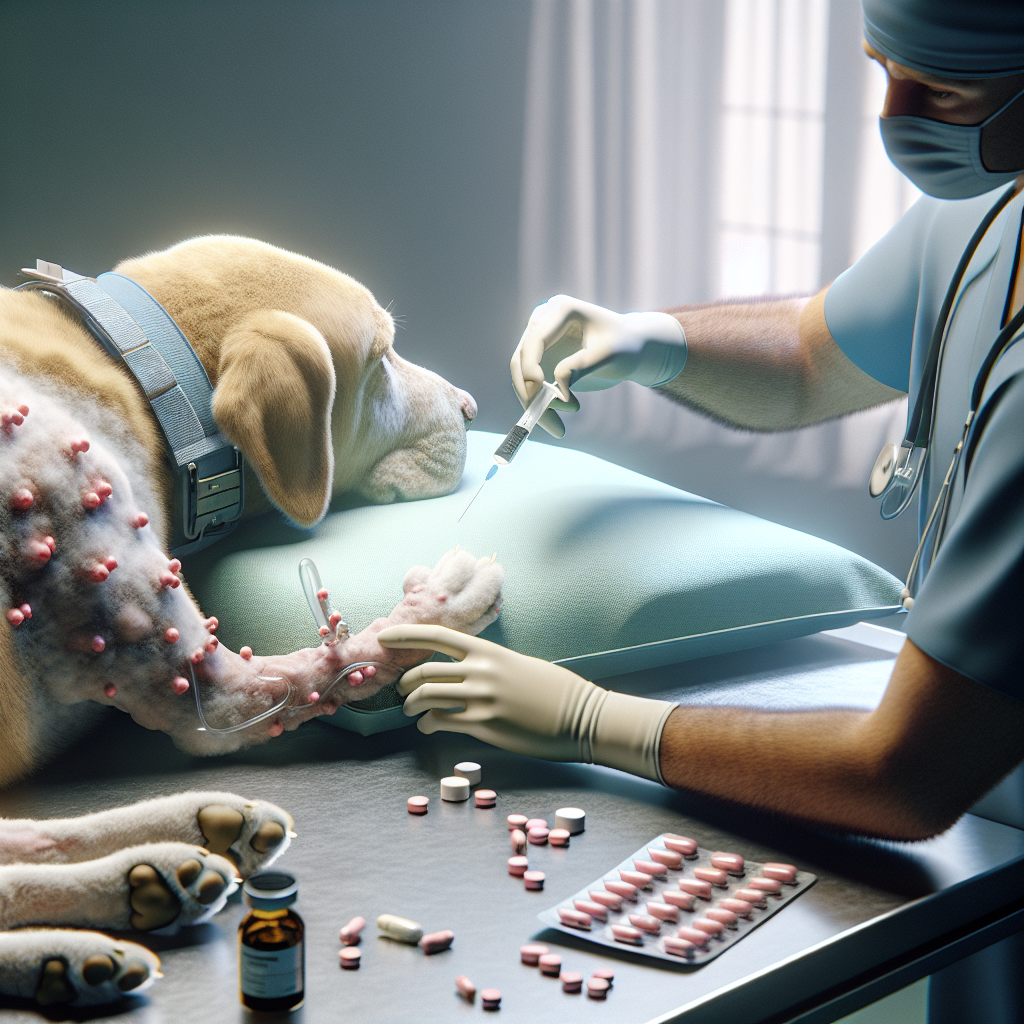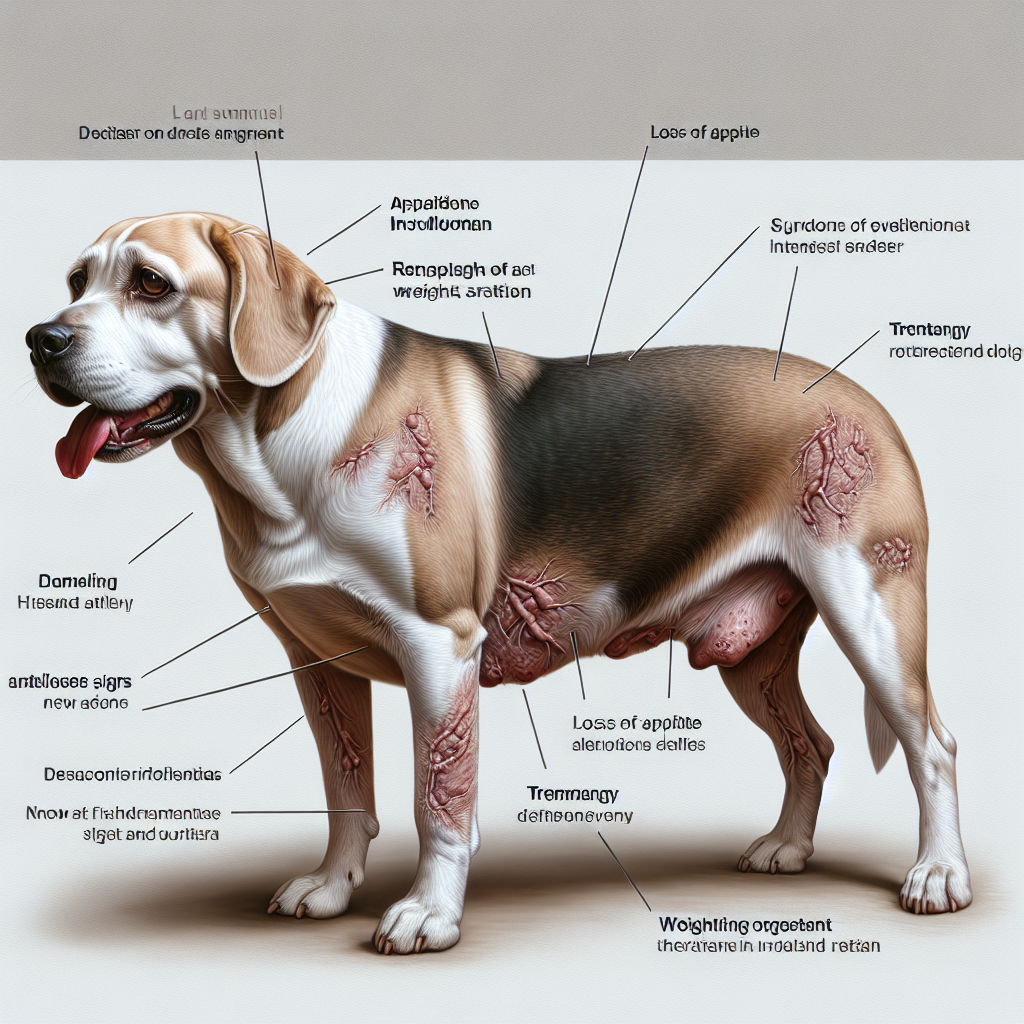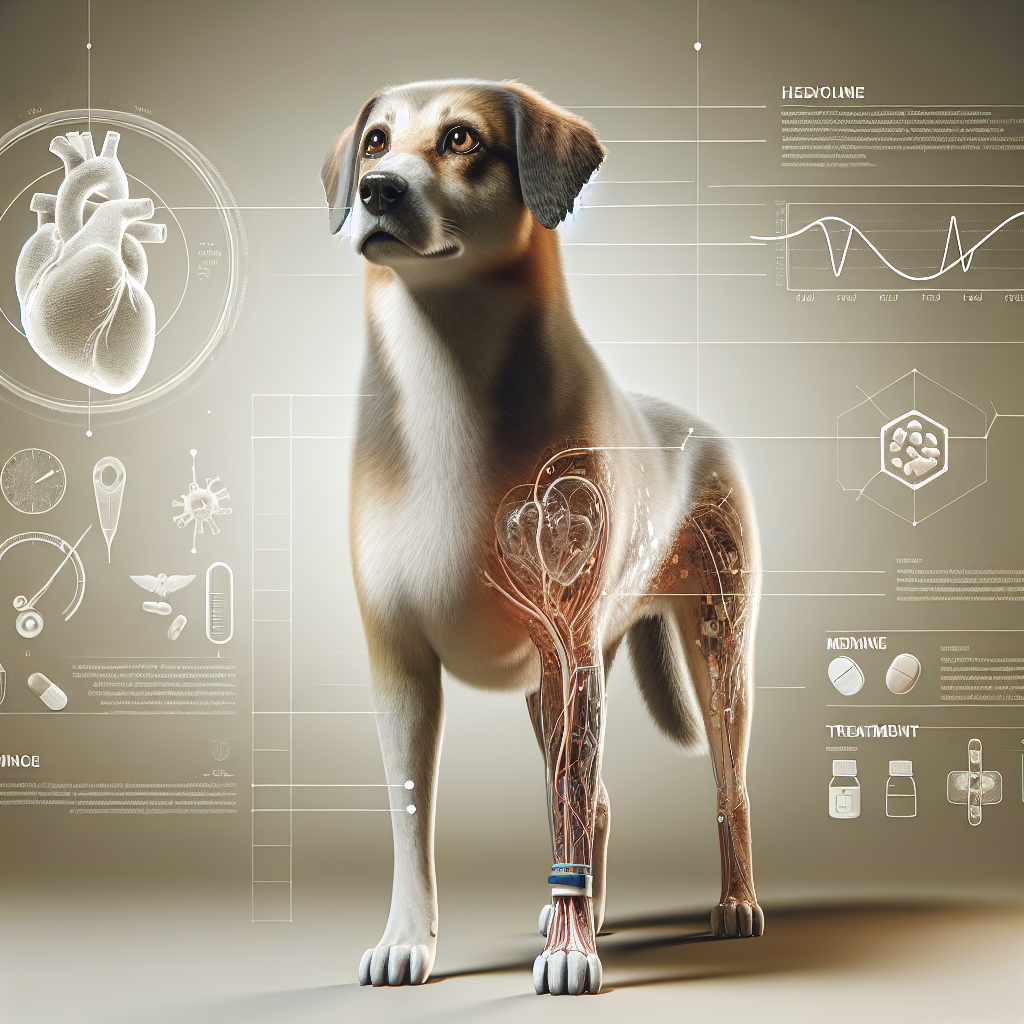Understanding Enlarged Liver in Dogs
When a dog’s liver becomes enlarged, it is known as hepatomegaly. This condition can be a symptom of various underlying diseases and requires prompt attention and treatment. Understanding the causes, risk factors, symptoms, and diagnosis of an enlarged liver in dogs is essential for effective management and treatment.
Causes and Risk Factors
The causes of liver problems in dogs can vary, including factors such as aging, genetics, infections, trauma, diseases, and medications that can harm the liver (WebMD). Certain breeds may also have a higher predisposition to liver disease. It is crucial to identify and diagnose the underlying cause of an enlarged liver early to initiate appropriate treatment.
Symptoms and Diagnosis
Detecting an enlarged liver in dogs can be challenging, particularly in obese dogs. However, some common symptoms may indicate hepatomegaly. These include ascites (fluid accumulation in the abdomen), an abnormally swollen belly, and signs of liver enlargement. In some cases, a palpable mass behind the rib cage may be visible with the naked eye (PetMD).
To diagnose an enlarged liver, a thorough evaluation is necessary. The veterinary process typically involves a detailed history, physical examination, complete blood profile, chemical blood profile, complete blood count, urinalysis, and further testing such as blood clotting profile and imaging tests like abdominal X-rays and ultrasonography (PetMD). These tests help in ruling out other potential causes and determining the underlying condition responsible for the liver enlargement.
Early detection and diagnosis are crucial for effective treatment and management of an enlarged liver in dogs. Once the cause is determined, appropriate treatment options can be explored to restore the health of your canine companion. To learn more about the treatment options available, refer to the next section on “Treatment Options for Enlarged Liver.”
Treatment Options for Enlarged Liver
When it comes to treating an enlarged liver in dogs, there are several options available depending on the underlying cause. Treatment plans are highly variable and may involve a combination of hospitalization, surgical interventions, and medications or supplements.
Hospitalization and Intensive Care
In cases where a dog’s enlarged liver is causing severe symptoms or complications, hospitalization and intensive care may be necessary. This allows for close monitoring of the dog’s condition and provides the opportunity for prompt intervention if needed.
During hospitalization, the dog may receive rehydration therapy to address any fluid imbalances and intravenous medications to stabilize their condition. Intensive care may also involve the administration of broad-spectrum antibiotics to treat any underlying infections that could be contributing to the liver enlargement.
Surgical Interventions
In certain situations, surgical interventions may be required to address specific issues associated with an enlarged liver. This could include the removal of cysts, abscesses, or tumors that are causing the enlargement.
Surgery is typically performed by a veterinary surgeon and will depend on the specific diagnosis and individual circumstances. The veterinarian will assess the risks and benefits of the procedure, taking into consideration the overall health of the dog. Surgical interventions can help alleviate the underlying cause of the enlarged liver and promote recovery.
Medications and Supplements
Medications and supplements play a crucial role in the treatment of an enlarged liver in dogs. Broad-spectrum antibiotics may be prescribed to combat bacterial infections that could be contributing to the liver enlargement.
In addition to antibiotics, multivitamins may be administered to support the overall health of the liver and aid in the recovery process. Certain liver supplements, such as S-Adenosylmethionine (SAMe) and Milk Thistle, can also be beneficial in promoting liver health and regeneration.
It’s important to note that the choice of medications and supplements should be made in consultation with a veterinarian. They will consider the underlying cause of the enlarged liver and tailor the treatment plan to address the specific needs of the dog.
By utilizing a combination of hospitalization, surgical interventions, and medications or supplements, veterinarians can provide effective treatment for dogs with an enlarged liver. It’s crucial to follow veterinary instructions closely and attend regular check-ups to monitor the dog’s progress and overall health. For more information on the causes, symptoms, and diagnosis of an enlarged liver in dogs, refer to our previous sections on causes of enlarged liver in dogs and symptoms and diagnosis.
Preventing Enlarged Liver in Dogs
Taking proactive measures to prevent enlarged liver in dogs is crucial for their overall health and well-being. By focusing on early detection and management, as well as promoting a healthy diet and lifestyle, dog owners can help reduce the risk of this condition.
Early Detection and Management
Early detection of liver disease is key to preventing the progression of liver enlargement in dogs. Regular veterinary check-ups and annual exams play a vital role in identifying any potential liver issues. During these visits, the veterinarian can assess the liver’s health through blood tests, imaging, and physical examinations. By catching liver disease in its early stages, interventions can be implemented promptly to prevent further complications.
It is also important for dog owners to be cautious with medications and supplements. Some medications and supplements can have adverse effects on the liver, so it’s crucial to consult with a veterinarian before administering any new treatments to your dog. Additionally, being aware of potential liver toxins, such as certain plants or insects, can help prevent liver damage.
Healthy Diet and Lifestyle
A healthy diet and lifestyle are essential in preventing and managing liver disease in dogs. Feeding a nutritionally balanced diet that supports liver health can make a significant difference. The diet for dogs with liver disease may have a lower total protein content but higher digestibility and quality to support liver healing (VCA Canada). Consulting with a veterinarian or veterinary nutritionist can help determine the best diet for your dog’s specific needs.
Regular exercise is also crucial for maintaining liver health. Exercise helps to promote overall well-being, proper digestion, and healthy metabolism. However, it’s important to consult with a veterinarian to ensure that the exercise regimen is appropriate for your dog’s condition.
By prioritizing early detection and management, as well as promoting a healthy diet and lifestyle, dog owners can play an active role in preventing enlarged liver in their beloved pets. In case your dog does experience liver disease, it’s important to follow veterinary instructions diligently and monitor their progress and health closely. The cost of treatment for an enlarged liver in dogs can vary depending on the underlying cause and necessary interventions, with an average cost ranging from $1,500 to $4,000 (Wagwalking). Remember, prevention is key, and your efforts can contribute to the overall well-being and longevity of your furry companion.
Nutritional Management of Liver Disease
When it comes to the treatment of liver disease in dogs, proper nutrition plays a vital role in supporting liver repair and overall health. The nutritional management of liver disease focuses on controlling clinical signs, promoting liver regeneration, and maintaining essential mineral balance.
Supporting Liver Repair
Dietary adjustments are crucial in supporting the healing process of the liver. A diet specifically formulated for dogs with liver disease typically has lower total protein content but higher digestibility and quality to support liver healing (VCA Canada). This ensures that the liver is not overwhelmed by excessive protein metabolism while still providing the necessary nutrients for repair.
Feeding small, frequent meals throughout the day can be beneficial for dogs with liver disease. This approach helps to prevent excessive strain on the liver and aids in better digestion and nutrient absorption. It is important to work closely with your veterinarian to determine the most suitable diet for your dog’s specific condition.
Essential Minerals and Nutrients
Maintaining appropriate levels of essential minerals is crucial for dogs with liver disease. These minerals play a vital role in supporting liver function and overall health. Some essential minerals and nutrients that are commonly considered in the nutritional management of liver disease include:
| Mineral/Nutrient | Role |
|---|---|
| Zinc | Supports liver function and helps with metabolism |
| Copper | Required for the synthesis of enzymes involved in liver detoxification |
| Vitamin E | Acts as an antioxidant, protecting liver cells from damage |
| Omega-3 fatty acids | Help reduce inflammation and support liver health |
Consulting with your veterinarian is essential to determine the specific mineral and nutrient requirements for your dog’s condition. They may recommend additional supplementation or specific therapeutic diets tailored to your dog’s needs.
It is important to note that the nutritional management of liver disease varies depending on the severity of the condition and the underlying cause. While some dogs may be able to transition to regular life-stage maintenance food once their liver issue is resolved, others with chronic liver disease may require long-term therapeutic diets and liver-support medications (VCA Canada).
Recovery from an enlarged liver in dogs depends on the diagnosis and treatment provided. Owners play a crucial role in the recovery process by following veterinary instructions, monitoring their dog’s health closely, and avoiding giving new medications without consulting the veterinarian. Dietary changes, such as a low protein diet with liver supplements, and feeding small, frequent meals, may aid in the recovery process (WagWalking).
By prioritizing proper nutrition and working closely with your veterinarian, you can provide the necessary support for your dog’s liver health and contribute to their overall well-being.
Recovery and Prognosis
Recovery from an enlarged liver in dogs depends on the diagnosis and treatment provided. It is essential for dog owners to closely follow veterinary instructions, monitor their dog’s progress and health, and avoid giving any new medication without consulting the veterinarian first.
Following Veterinary Instructions
To ensure the best possible outcome for your dog, it’s crucial to adhere to the instructions provided by your veterinarian. This may include administering prescribed medications, following a specific diet plan, and scheduling regular follow-up appointments. Promptly addressing any concerns or changes in your dog’s condition with your veterinarian is important for their recovery.
It’s important to note that the liver is responsible for drug metabolism in dogs, so it is crucial to consult with a veterinarian before giving any new medications. Some medications can have adverse effects on the liver or interact with existing treatments. Your veterinarian will guide you on the appropriate medications and dosages for your dog’s specific condition.
Monitoring Progress and Health
Monitoring your dog’s progress and overall health is essential during the recovery process. Observing changes in behavior, appetite, energy levels, and bathroom habits can provide valuable insights into their well-being. If you notice any concerning symptoms or a decline in your dog’s condition, it’s important to notify your veterinarian promptly.
Regular check-ups and follow-up appointments with your veterinarian are vital to monitor your dog’s progress. These appointments may include laboratory testing, radiography, or other diagnostic procedures. These evaluations help your veterinarian assess the effectiveness of the treatment plan and make any necessary adjustments.
It’s important to note that the prognosis for a dog with an enlarged liver can vary depending on the underlying cause and duration of the disease. Some causes of enlarged liver in dogs may be reversible, while others may require lifelong management. Your veterinarian will provide guidance on the expected prognosis for your dog’s specific condition.
By closely following veterinary instructions and monitoring your dog’s progress and health, you can actively contribute to their recovery from an enlarged liver. It’s important to remember that recovery may take time, and patience is key. With appropriate care and management, many dogs can lead healthy and fulfilling lives despite their condition.
For more information on liver-related conditions in dogs, please visit our article on liver disease in dogs.






